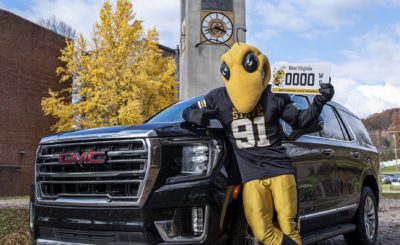State’s contributions to Black History Month include the celebrated Tuskegee Airmen, the first black Air Force squadron. They were formed and first trained at an airfield on campus
These pilots’ made WWII history as the most successful fighter group accompanying Allied bombers over German airspace. Of 200 missions, not a single one of the aircraft they escorted was shot down.

Here’s more from an article on the Tuesday Morning Group blog:
It was September 10, 1939, when West Virginia State College became the first of six HBCU’s to be authorized by the Civil Aeronautics Authority to establish an aviation program. The response of the Pittsburgh Courier newspaper to the announcement of West Virginia State’s selection was a story that began with “What we have just witnessed is a miracle…supplemented by the far-sighted genius of men of action, backed by visions which have come true.” This explains how big this actually was.
The first pilot training class at West Virginia State College began on November 14, 1939. By January 1941, West Virginia State College had graduated several classes from their aviation program and were actively competing for authority to offer a commercial pilot’s course for the graduates of the aviation programs at the six historically black colleges.
The construction of the Army Air Field at Tuskegee Institute began on June 23, 1941. The 99th Pursuit Squadron was assigned to conduct the training. The first cadet pilot training class consisted of 13 members that included George Roberts and Mac Ross from West Virginia State College.
In a July 24, 1943 letter to President Davis, Mr. Evans states, “It is interesting to note from the press releases from Tuskegee Army Air Field, the increasing number of West Virginia State College graduates and students who are (joining the Tuskegee Airmen).”
During the course of (World War II), the Tuskegee Airmen lost 66 pilots killed in the combat zone. They destroyed or damaged 409 German aircraft, over 950 units of ground transportation, and sank a destroyer with machine gun fire alone, which was a unique accomplishment. However, their most distinctive achievement was that not one friendly bomber was lost to enemy aircraft attacks during 200 escort missions. This success was unique because no other fighter unit with nearly as many missions could make the same claim.


